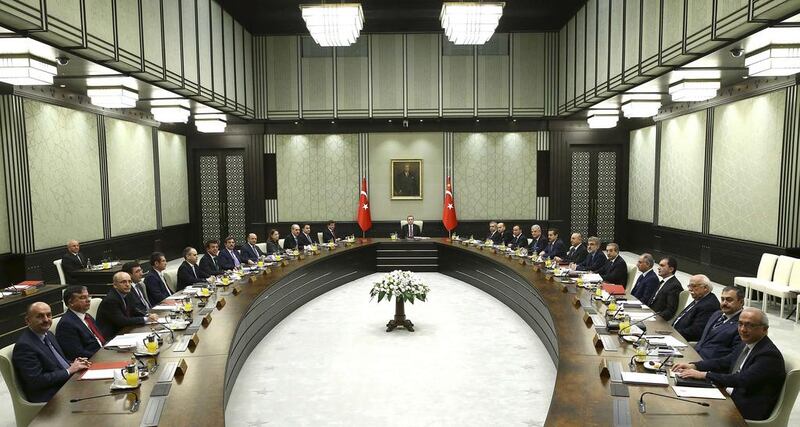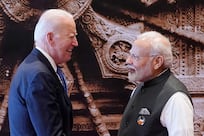After 13 years in power, Recep Tayyip Erdogan’s growing authoritarianism and grandiose notions of his office are threatening to undermine the health of Turkey’s government. The Turkish Central Bank, for instance, has just cut interest rates, seemingly not for sound economic reasons but because Mr Erdogan publicly insisted. Not only is Mr Erdogan undermining key economic institutions but he is presiding over a half-hearted policy of half-measures towards the international coalition’s fight against ISIL in Syria and Iraq. This is extraordinary for all sorts of reasons. Turkey, which has Nato’s second largest army, must reasonably be expected to pull its weight in this particular war. As a regional power too, it has certain responsibilities. And surely it is politic to maintain good relations with Nato? But Mr Erdogan, ensconced in his 1,150-room new palace, which is four times the size of Versailles, seems not to care, all of which threatens Turkey’s political and economic standing in the international community.
This is a shame and risks drying up confidence at a time when Turkey is desperately in need of more international investment. Until recently, it seemed to be managing surprisingly well despite the global economic slowdown. Then, political instability at home and abroad cut growth forecasts and the country’s oversized current account deficit and the complications from a continuing corruption inquiry led to a sharp depreciation of the lira. This has led president Erdogan to invest substantial political capital in economic matters like interest rates, ahead of general elections in June. Many believe that if such a canny pre-election stimulus works and Mr Erdogan’s AKP secures a sizeable victory, the president will have all he needs to rewrite the Turkish constitution and give his office sweeping new powers. More to the point, he could rule unchallenged until 2019, the pasha, nay the sultan, of a whole new social structure.
Four years would be ample time to bring about far-reaching change that could threaten Turkey’s secular structures. But then for Mr Erdogan, it would be recklessness that would define his time in power.





